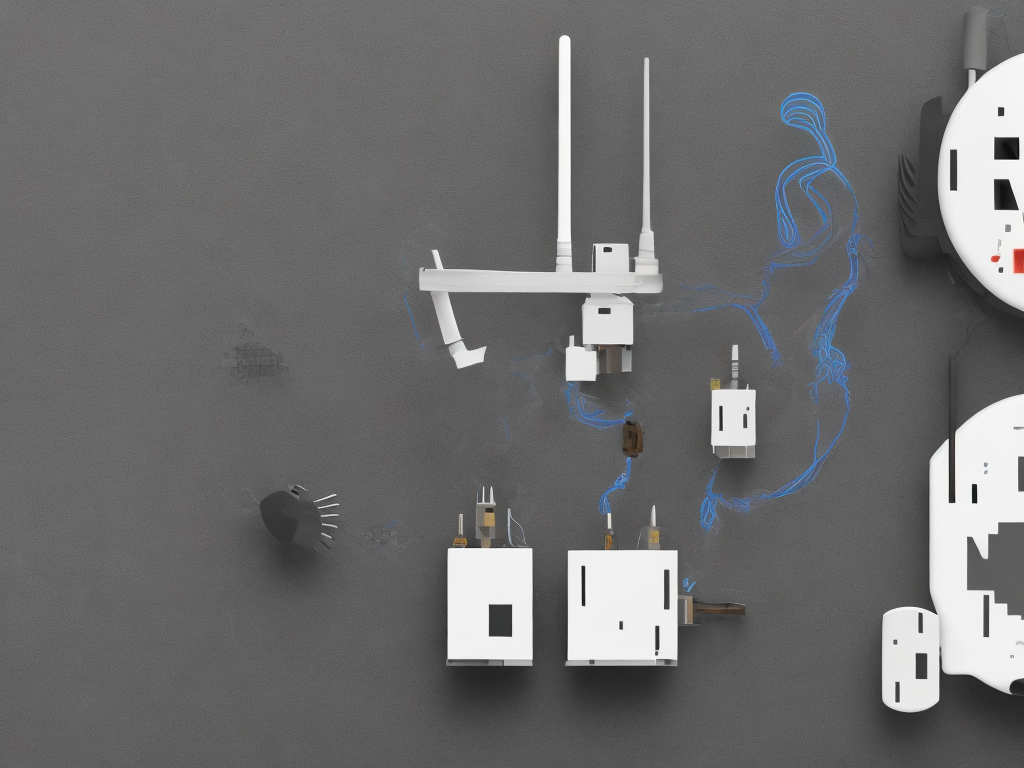
In today's digital age, internet has become an essential service for almost every household, and most people use either a router or a modem, or both, to access the internet. While these two devices play a crucial role in connecting users to the internet, they are not the same thing. In order to understand the difference between a router and a modem, let's first define what they are.
A modem, short for Modulator-Demodulator, is a device that connects a computer, laptop, or any other electronic device to the internet service provider (ISP) using a coaxial cable or phone line. The purpose of a modem is to convert the digital signal from your device into an analog signal, which can then be transmitted over the ISP's network. The modem then translates the analog signal back into digital format so that your device can understand it.
A router, on the other hand, is a device that connects multiple devices to a single internet connection. It acts as a central hub that allows different devices to communicate with each other and with the internet. A router connects to a modem and then takes the internet signal it receives from the modem and broadcasts it wirelessly or through Ethernet cables to other devices in your home or office.
Now that we have established what a modem and a router are, let's dive deeper into their differences.
Function and Purpose
As mentioned earlier, a modem is used to establish a connection between your device and your ISP. Its sole purpose is to provide access to the internet. A router, on the other hand, goes beyond that. It not only connects you to the internet but also allows you to connect multiple devices to the internet. It creates a network in your home or office, where devices can communicate with each other, share files, and access the internet.
Type of Connection
A modem is necessary for most homes or offices to get online. It connects to your internet service provider (ISP) via a phone line, fiber-optic cable, or cable line. There are different types of modems available, such as cable modems, DSL modems, and fiber-optic modems. The type of modem you need depends on the type of internet connection you have.
A router, on the other hand, doesn't usually have a dedicated input port. Instead, it uses an Ethernet cable to connect to a modem, which then provides internet access.
Range of Coverage
A modem generally has a limited range of coverage. It can only connect devices that are directly connected to it via Ethernet cables. So, for instance, if your modem is situated in your living room, a device located in the other end of your home might have difficulty connecting to it.
A router, on the other hand, broadens the scope of internet coverage. A wireless router allows devices to connect to the internet through Wi-Fi, which is transmitted over radio waves. The coverage range of a router depends on its specifications, such as antenna strength and the speed of its internet connection. A router that can broadcast over a longer distance and is equipped with a powerful processor can cover a greater area and provide faster internet speeds.
Security
A modem doesn't typically have a firewall, which means it doesn't protect your device from potential threats from other devices on the network or from the internet.
A router, on the other hand, features a built-in firewall and other security safeguards that prevent unauthorized access to your network. It also allows you to set up a password and encryption for your Wi-Fi network, which keeps it secure from hackers and malicious attacks.
Conclusion
In summary, a modem and a router are two separate devices that serve different functions. A modem connects your device to your ISP, and a router connects your devices to the internet as well as to each other. While a modem has a limited range of coverage and doesn't offer security provisions, a router broadens internet coverage and comes with security safeguards. It is important to understand the differences between the two devices so you can make informed decisions when it comes to your internet requirements.
 Self-Instruct
Self-Instruct